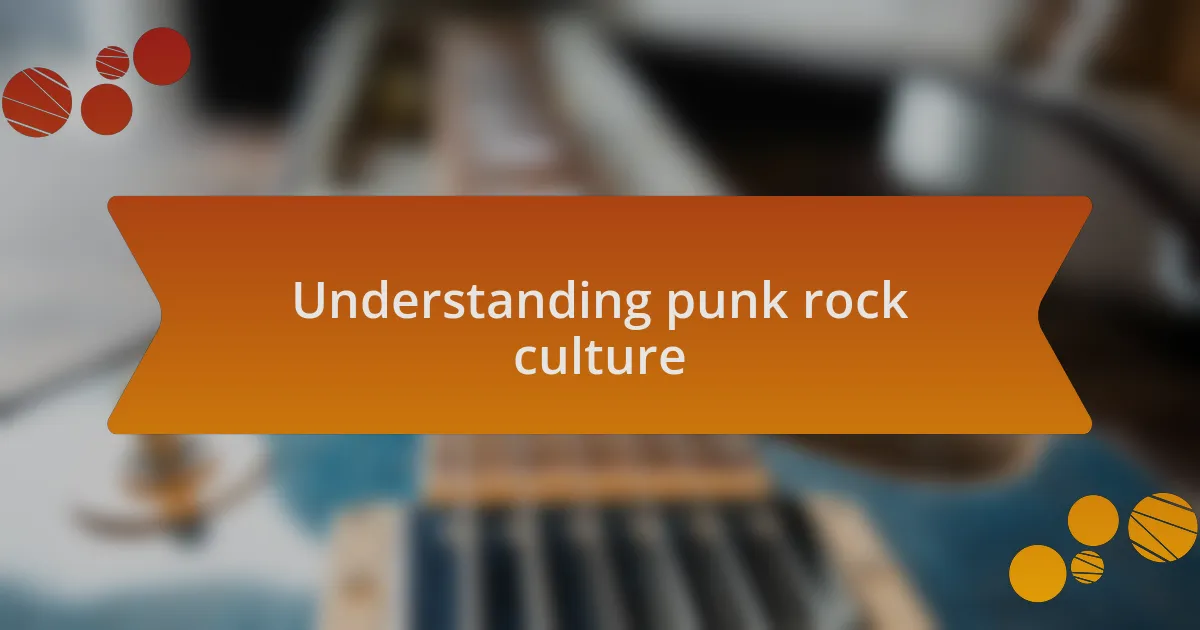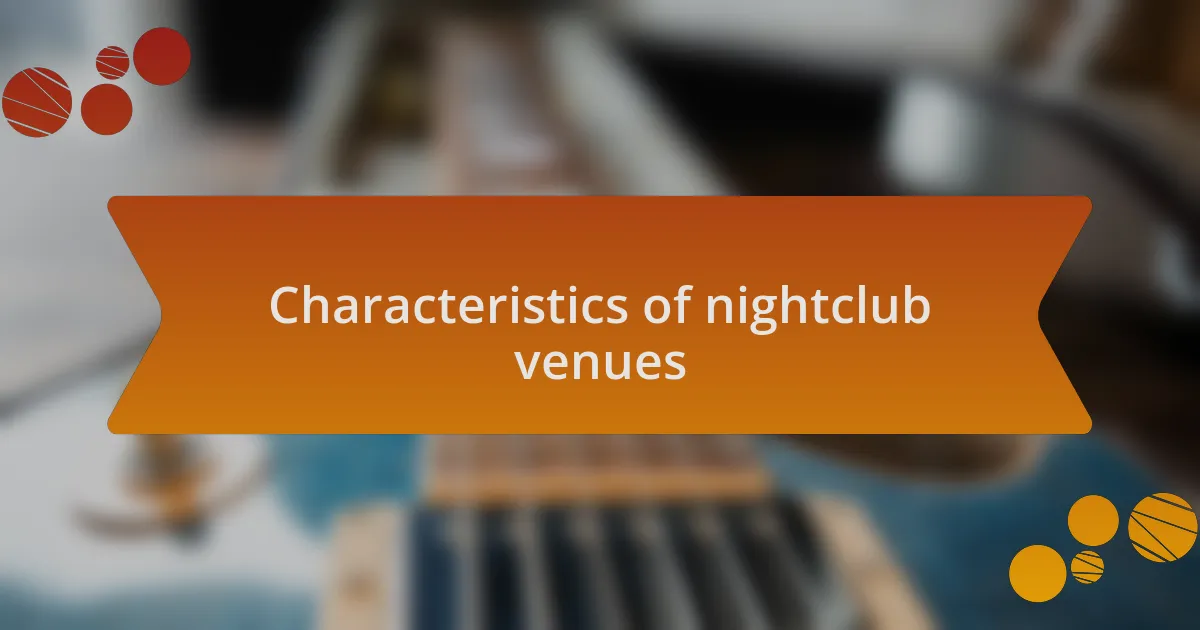Key takeaways:
- Punk rock culture emphasizes rebellion, individuality, and self-expression, both in music and personal style.
- Music venues play a critical role in the punk scene, fostering community and facilitating connections among fans and artists.
- Nightclub venues enhance the experience through vibrant atmospheres, strategic layouts, and high-quality sound systems.
- These spaces often serve as safe havens for marginalized individuals, allowing them to express their identities freely.

Understanding punk rock culture
Punk rock culture is as much about the music as it is about a way of life. I remember attending my first punk show, feeling the raw energy of the crowd and the passion in the lyrics—a visceral experience that was unlike any other. It left me pondering, how can sound provoke such intense emotions and foster a sense of community?
At its core, punk rock is about rebellion and individuality. I can’t help but think of how these artists used their voices to challenge societal norms, reflecting their frustrations and dreams. This defiance is something I’ve carried into my own life; it makes me wonder, what would we lose if we didn’t embrace our unique perspectives?
The fashion and style that accompany punk culture are not just aesthetics; they’re a form of self-expression. I still vividly recall the eclectic mix of leather jackets, vibrant hair colors, and DIY fashion at shows, each piece telling a personal story. Have you ever considered how powerful our choices in style can be, echoing who we are and what we believe?

Importance of music venues
Music venues are crucial to the punk rock scene, serving as the fertile ground where raw talent takes root. I recall the dimly lit basement of a local venue where I first discovered an underground band. The intimacy of the space allowed me to connect deeply with both the music and the artists, creating a shared experience that’s often missed in larger arenas. Have you ever felt that rush of being so close to the heartbeat of a performance?
These venues not only provide a stage for emerging artists but also foster a sense of community among fans. I distinctly remember standing shoulder to shoulder with strangers, all of us united by our love for the music and the message it conveyed. In moments like these, it struck me how vital these spaces are for facilitating conversations and connections that might not happen elsewhere.
Moreover, music venues often become a safe haven for those feeling marginalized, allowing them to express their identity freely. I think back to the diverse crowd at a recent punk show—a blend of backgrounds and stories, yet all embracing the same punk ethos. Isn’t it remarkable how these spaces can empower individuals to feel seen and heard?

Characteristics of nightclub venues
Nightclub venues are often characterized by their vibrant atmosphere, created by pulsating lights and the energy of the crowd. I remember stepping into a venue one night and feeling the bass vibrate through my chest, instantly elevating my mood. Isn’t it fascinating how the right ambiance can transform a simple night out into an unforgettable experience?
The layout of a nightclub is designed to encourage movement and interaction. I can still visualize the way the dance floor was positioned close to the stage, allowing fans to engage with the performers effortlessly. This design enhances the relationship between artists and the audience, making the energy of the performance even more palpable. Have you ever thought about how the physical space influences the connection we feel with the music?
Additionally, the sound quality is a crucial characteristic of any nightclub venue. I distinctly recall a night where the clarity of the music sent chills down my spine, as every note resonated perfectly. A good sound system can make or break the experience, and it’s amazing how the right acoustics can turn a good show into a legendary one. How often do we take sound quality for granted in venues?